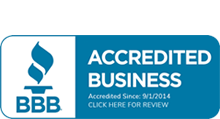Another in a series of articles related to association management selected from our reading list by:
Robert O. Patterson, JD
CEO/ Principal
The Center for Association Resources, Inc.
When examining the field of nonprofit work, which focuses on providing a wholesome contribution to the community, it becomes clear that the ethics of such associations must be pure and unquestionable. This is essential for several reasons: most importantly, the integrity of a nonprofit organization must be intact for it to have any stature in society. Furthermore, the efficiency of such organizations is compromised by any foul play or mismanagement, and in organizations where every penny is supposed to be used to further a particular cause, efficiency is key.
Well-preserved ethics and codes of conduct amongst nonprofit organizations are essential for another reason: an organization cannot run efficiently unless all of its transactions are transparent and above board. Should a breach of ethics occur such as the siphoning of an organization’s funds into an administrator’s personal account, the money lost would be a much greater blow to a not for profit than to a multimillion dollar commercial corporation. Indeed, the majority of nonprofit organizations operate at the bottom line, as they typically rely on charitable donations, not the most opulent of sources, to garner funds. Furthermore, when helping the thousands or millions in suffering, a dollar must be stretched as far as possible, and even then it will fall short. If ethics are breach regarding the handling of an association’s funds, it will drastically decrease the necessary efficiency of the organization.
There are a multitude of reasons as to why ethics in nonprofit associations are essential. Any lack of ethics destroys an organization’s reputation and good standing, and cuts into its efficiency. For these reasons, it is clear that to run a nonprofit organization well, upholding ethics must be a key component of the organization’s mission statement.







